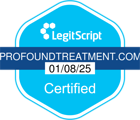Sleeping pills are sedative hypnotics and are prescribed for insomnia and other sleep disorders. Sleeping pills are only prescribed as a short-term solution for sleep as many of them have the potential to lead to misuse, abuse and addiction. Some examples of commonly prescribed sleeping pills include:
Sleeping pills
- Ambien
- Sonata
- Edluar
- Lunesta
Though they do have legitimate uses, sleeping pills also come with significant risks for abuse.
- 21% of people who abused sleeping pills had thoughts of suicide related to their drug use
- 9 million Americans regularly use sleeping pills to help them sleep at night.
SIGNS OF ABUSE
Symptoms of sleeping pill abuse include:
- lightheadedness
- depressed breathing rate
- reliance on sleeping pills every night
- not experiencing the same effects from the same dose
- preoccupation with bedtime in order to take medication
- taking medication just to feel euphoric effects
- cravings to use sleeping pills during the day
- running out of prescription early
WITHDRAWAL AND DETOX
Over time, the brain becomes accustomed to the effects of sleeping pills and recovery gets harder. Often, recovering sleeping pill addicts will suffer from “rebound insomnia,” or a compounded insomnia that is even worse than it was before they started taking medication. This is a common side effect and should not be used as a reason to continue taking sleeping pills. Fortunately, medically assisted detox can help minimize this and other symptoms of withdrawal.
TREATMENT
Typically inpatient rehab is the best and safest option for an addict to learn healthy coping skills related to their addiction. Profound offers programs for every step of the recovery process, including detox and inpatient treatment. We’re here to help craft the best possible treatment plan that will suit your needs, as no two cases are the same.
Find out about all the ways Profound can help you on your journey to recovery today.
Sources:








